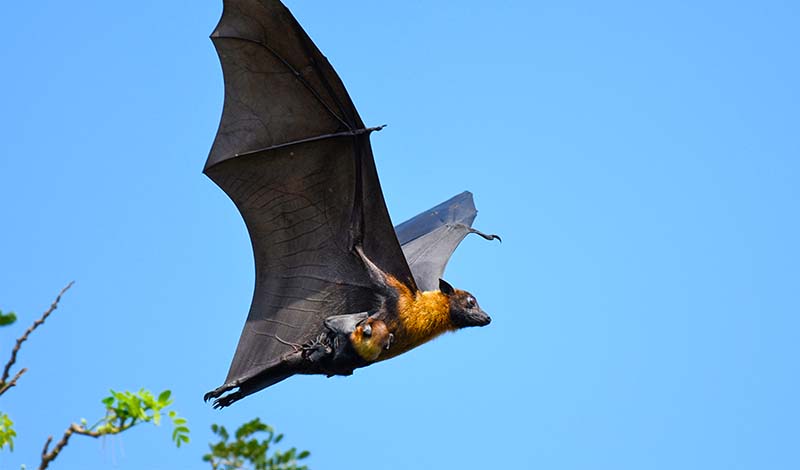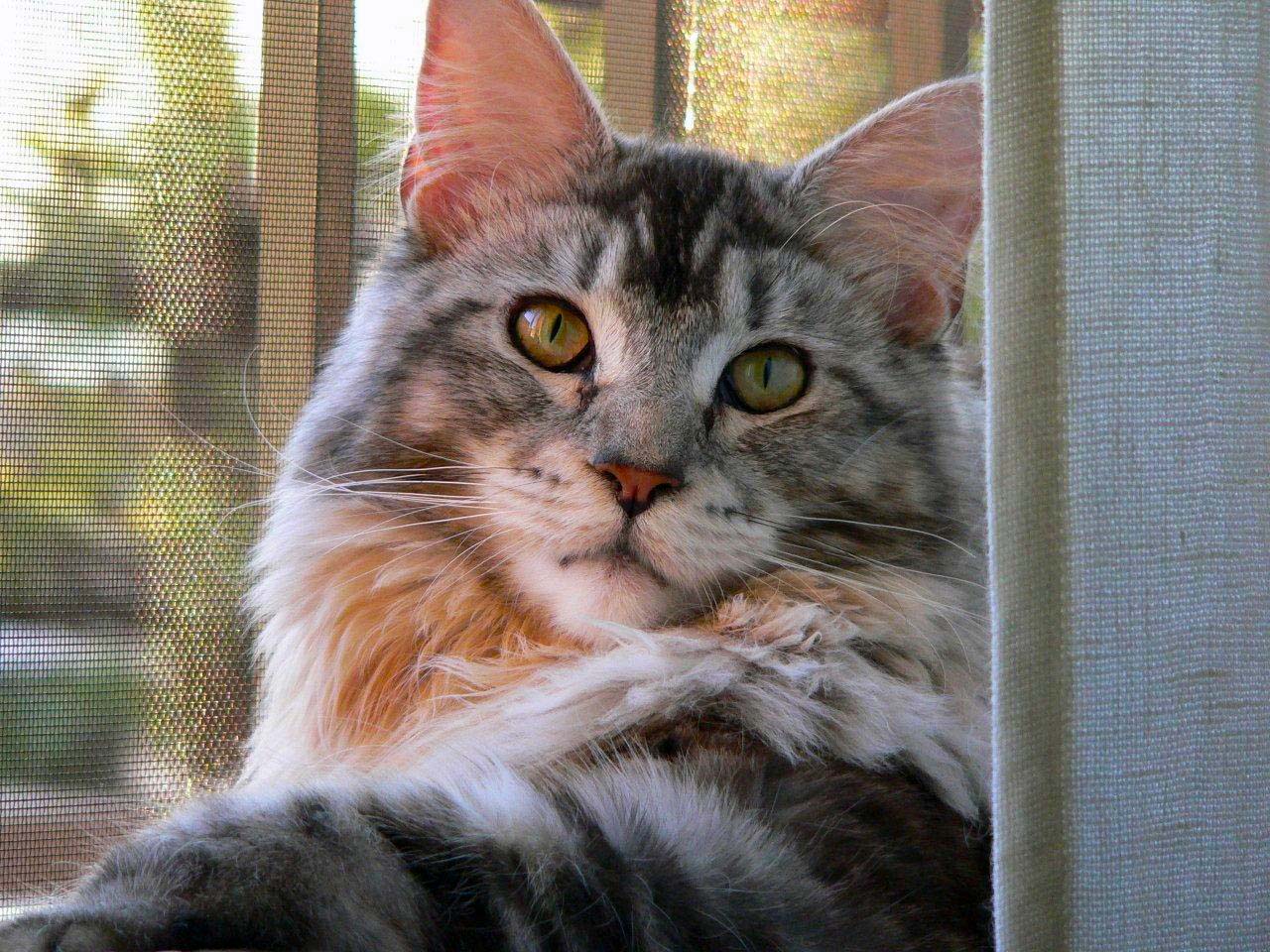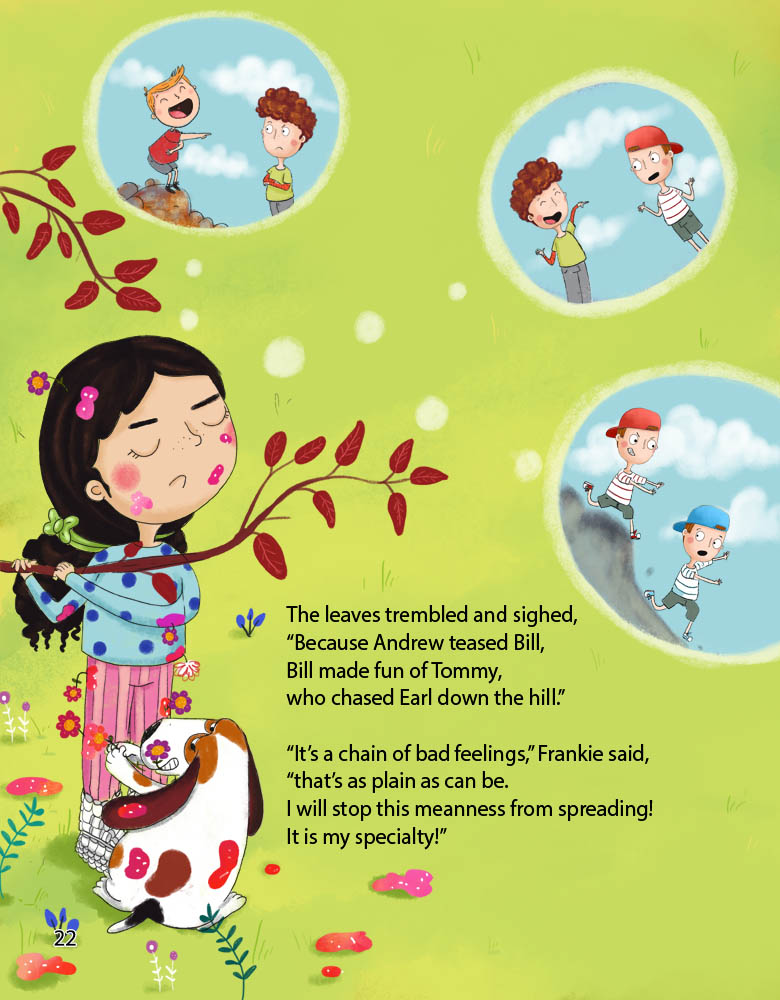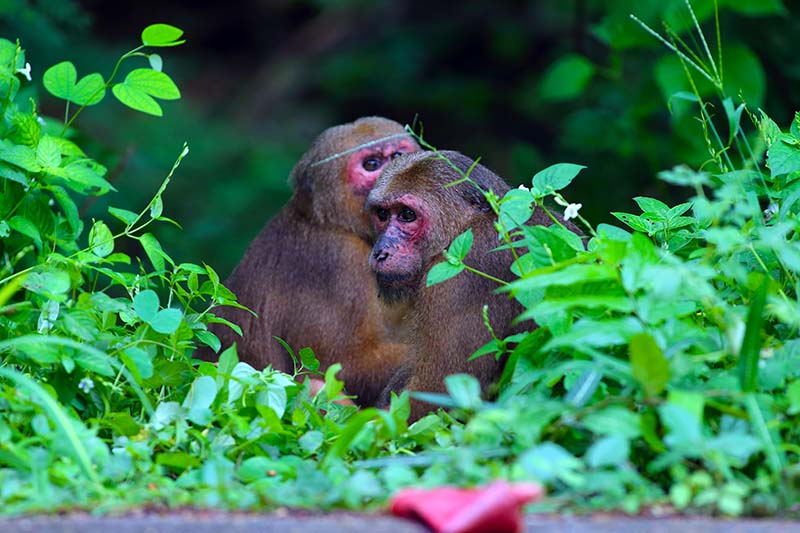1.5-minute read
Recent advances in technology have enabled us to keep tabs on happenings just about everywhere in the world that we’re not, including hard-to-reach places in nature—like the underbellies of fruit bats, for example. Through high-resolution GPS tracking of the furry fliers, scientists are learning how next-generation tropical fruit pollinators acquire the navigation skills they need to take over the night shift and keep us well-stocked in bananas, mangoes, guavas, and cocoa. And the secret to their successful schooling? Baby fruit bats have a ticket to ride.
Researchers studying how bat pups learn to navigate to and from fruit-bearing trees believe the future pollinators are getting an upside-down, in-flight education from their mothers. Egyptian fruit bats head out of the cave at nightfall with their three to 10-week-old pups in tow and deposit them on drop-off trees while they forage nearby for food. The mom-bats check in with their babies as needed throughout the night and then pick them up and return to the cave before sunrise.
When the pups grew old enough to fly solo, scientists discovered they followed the same routes and roosted in the same trees their mothers had shown them. And if the newly independent bats failed to return to the safety of the cave before daybreak, they could count on their watchful moms to track them down. Even though carrying their babies to and fro while foraging takes more energy, the pollinating parents do the extra work so that pups can increase their odds of survival by observing how, when, and where to get down to bat business. Fruit bat see, fruit bat do.
But Magpies Say No
Conservation scientists have successfully used GPS and drone technologies to track and study the movements of creatures great and small, including whales, wolves, butterflies, and bats. However, because some animals seem to be very protective of their privacy, the information-gathering process doesn’t always go according to plan. As FWP’s favorite cartoonist First Dog on the Moon illustrates, Australian magpies defiantly opt out.
Audubon Photo Contest
A quick reminder that you have until March 9, at 12 p.m. EST to enter your best bird pics in the 2022 Audubon Photography Awards. You can read all about it here. The feathered ones await your winning photographic artistry.
And One More Big Thing
Big Life, one of the most effective conservation organizations in Africa, has released an inspiring short film celebrating their success in combating elephant poaching in Kenya and Tanzania. Please watch it here. And if you’d like to explore the stunning photography of Big Life co-founder Nick Brandt, we highly recommend his latest book, The Day May Break.
Because of the everything of everything else going on, if you’re in need of a video of a rescued baby bat enthusiastically enjoying fruit, you can find one here. They like making fruit, and they like eating fruit.




















































